Psalm 96:11-12
11 Let the heavens be glad, and let the earth rejoice; Let the sea roar, and all the things it contains; 12 Let the field be exultant, and all that is in it. Then all the trees of the forest will sing for joy.

Pastor Solomon & Chuks Igwebuike are now following Mark Riches
Iris Da Silveira & Georgina Eze are now following Pastor Solomon
Iris Da Silveira & Pastor Solomon are now following Georgina Eze
Pastor Solomon & Iris Da Silveira are now following hayley tendo
God is always worthy of our praise.
Psalm 146:1–2 is a simple but powerful reminder to always praise God. The writer starts by saying, "Praise the Lord," and even tells their own soul to praise Him. This shows that worship isn’t just something we do with others, but also something personal and from the heart. It’s like the psalmist is talking to themselves, encouraging their own spirit to stay focused on God. Then, the verse says, “I will praise the Lord all my life; I will sing praise to my God as long as I live.” This means the writer is committed to praising God not just in good times, but every day, for their whole life. It’s about having a constant attitude of thankfulness and trust in God. These verses remind us that no matter what happens, God is always worthy of our praise. Read more

I WILL SING TO THE LORD ALL MY LIFE; I WILL SING PRAISE TO GOD AS LONG AS I LIVE!
Psalm 104:33 encapsulates a lifelong commitment to worship and thanksgiving, with the verse declaring, "I will sing to the Lord all my life; I will sing praise to my God as long as I live." This summary emphasizes a dedication that transcends ordinary, time-bound acts of praise, representing a continual, heartfelt response to God’s infinite grace and majesty. The verse serves as a profound expression of devotion, suggesting that living in recognition of God's work in creation naturally inspires ongoing celebration and gratitude. The verse illustrates that true worship is not episodic or limited to formal religious ceremonies, but rather an ever-present disposition of the heart. It reminds believers that in every moment, amidst the cycles of nature and the rhythms of daily life, there is an inherent call to acknowledge and appreciate God’s sustaining power. This continuous outpouring of praise is portrayed as both a natural and essential reaction to the wonders of the natural world and the divine care that orchestrates all life. Psalm 104:33 acts as a model for modern believers, underscoring the importance of integrating worship into every aspect of existence. The verse inspires individuals to maintain a spirit of joyful praise regardless of external circumstances, encouraging a life where gratitude and reflection become part of the daily experience. In this way, the verse not only celebrates the beauty of God’s creation but also calls for a persistent, affirming connection with the divine throughout one’s lifetime. Read more
I WILL SING TO THE LORD ALL MY LIFE; I WILL SING PRAISE TO GOD AS LONG AS I LIVE!
Psalm 104:33 expresses the psalmist’s deep desire to praise God throughout their entire life. The verse emphasizes a lifelong commitment to worship, inspired by the beauty and majesty of God's creation described throughout the rest of Psalm 104. It shows that true worship flows naturally from recognizing God's presence and power in the world. This verse also reflects the personal nature of the psalmist’s relationship with God. Singing is portrayed as a heartfelt and joyful response, not just a duty. It demonstrates that worship is not limited to certain moments but is a continuous act of love and gratitude toward the Creator. In summary, Psalm 104:33 encourages believers to live a life rooted in praise, recognizing God’s goodness daily. It calls for worship to be more than an occasional act—it should become a way of life, shaped by faith, thankfulness, and an awareness of God's ongoing work in the world. Read more

New Testament Scriptures that Prove Christ is God Almighty
1. John 1:1, 14 (KJV) "In the beginning was the Word, and the Word was with God, and the Word was God... And the Word was made flesh, and dwelt among us." → Jesus (the Word) is God and became flesh. 2. John 20:28 (KJV) "And Thomas answered and said unto him, My Lord and my God." → Thomas directly calls Jesus “God,” and Jesus does not correct him. 3. Colossians 2:9 (KJV) "For in him dwelleth all the fulness of the Godhead bodily." → Jesus contains the full nature of God in bodily form. 4. Hebrews 1:8 (KJV) "But unto the Son he saith, Thy throne, O God, is for ever and ever..." → God the Father refers to the Son as “O God.” 5. Titus 2:13 (KJV) "Looking for that blessed hope, and the glorious appearing of the great God and our Saviour Jesus Christ." → Jesus is called both “God” and “Saviour.” John 14:5–9 (King James Version) 5 Thomas saith unto him, Lord, we know not whither thou goest; and how can we know the way? 6 Jesus saith unto him, I am the way, the truth, and the life: no man cometh unto the Father, but by me. 7 If ye had known me, ye should have known my Father also: and from henceforth ye know him, and have seen him. 8 Philip saith unto him, Lord, shew us the Father, and it sufficeth us. 9 Jesus saith unto him, Have I been so long time with you, and yet hast thou not known me, Philip? he that hath seen me hath seen the Father; and how sayest thou then, Shew us the Father? Read more
Chosen in Love: A Divine Purpose
God chose us in Christ before the creation of the world to be holy and blameless in His sight. Motivated by love, He predestined us to be adopted as His children through Jesus Christ, according to His divine will and purpose. This wasn’t a random decision but a deliberate act of love. Before time began, God envisioned a people set apart, shaped by grace, and destined to walk in purity, not by our own merit, but through His transforming presence. Glory be to GOD Almighty. Read more

Christ is Sovereign
In Matthew 23:34, Jesus declares that He sent prophets, wise men, and teachers as part of His divine mission, reflecting His authority and glory. These messengers are sent to guide the people back to truth and righteousness, yet Jesus laments that they will be rejected, persecuted, and even killed—just as their ancestors did to the prophets before them. This verse highlights both Christ’s sovereign role in commissioning His followers and the tragic pattern of resistance to God's messengers, pointing to the coming judgment for those who persist in such rebellion. Read more

Christ affirmed His identity as the Supreme Almighty, based on His words and actions in Scripture:
Revelation 22:13, Jesus Himself says, "I am the Alpha and the Omega, the First and the Last, the Beginning and the End," clearly equating Himself with the Almighty. These statements reveal His claim to eternal existence, divine authority, and absolute supremacy.
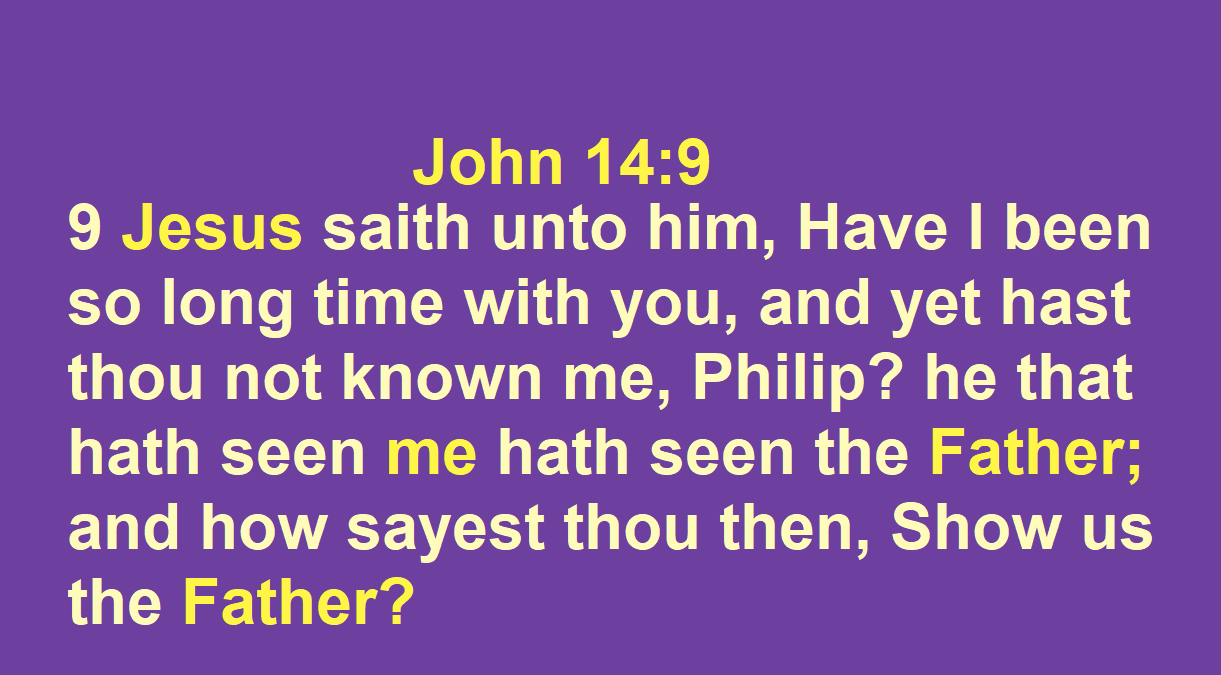
Christ affirmed His identity as the Supreme Almighty, based on His words and actions in Scripture:
In John 8:58, Jesus makes a powerful declaration of His eternal and divine nature: "Before Abraham was, I AM." This statement directly echoes the name God used to describe Himself in Exodus 3:14—"I AM WHO I AM"—when speaking to Moses at the burning bush. By using the phrase "I AM," Jesus was not only claiming pre-existence before Abraham but also identifying Himself with Yahweh, the eternal, self-existent God of Israel. This was so clear to His audience that they picked up stones to kill Him for blasphemy (John 8:59), understanding that He was making a direct claim to divinity. This is one of the clearest affirmations from Jesus about His supreme, eternal identity. Another compelling confirmation comes from John 10:30, where Jesus states, "I and the Father are one." The Greek word used for "one" here, hen, implies unity in essence or nature—not just purpose. The Jewish leaders’ reaction in the next verses confirms their understanding of His claim: "You, a mere man, claim to be God" (John 10:33). Furthermore, in Revelation 1:8, a title often ascribed to God the Father is echoed in Jesus’ words: “I am the Alpha and the Omega,” says the Lord God, “who is, and who was, and who is to come, the Almighty. ” Later in Revelation 22:13, Jesus Himself says, "I am the Alpha and the Omega, the First and the Last, the Beginning and the End," clearly equating Himself with the Almighty. These statements reveal His claim to eternal existence, divine authority, and absolute supremacy. Other References: John 8:58 – Jesus’ claim: “Before Abraham was, I AM.” Exodus 3:14 – God’s name revealed to Moses: “I AM WHO I AM.” John 10:30-33 – “I and the Father are one.” Revelation 1:8 – “I am the Alpha and the Omega. .. the Almighty.” Revelation 22:13 – Jesus: “I am the Alpha and the Omega…” Read more
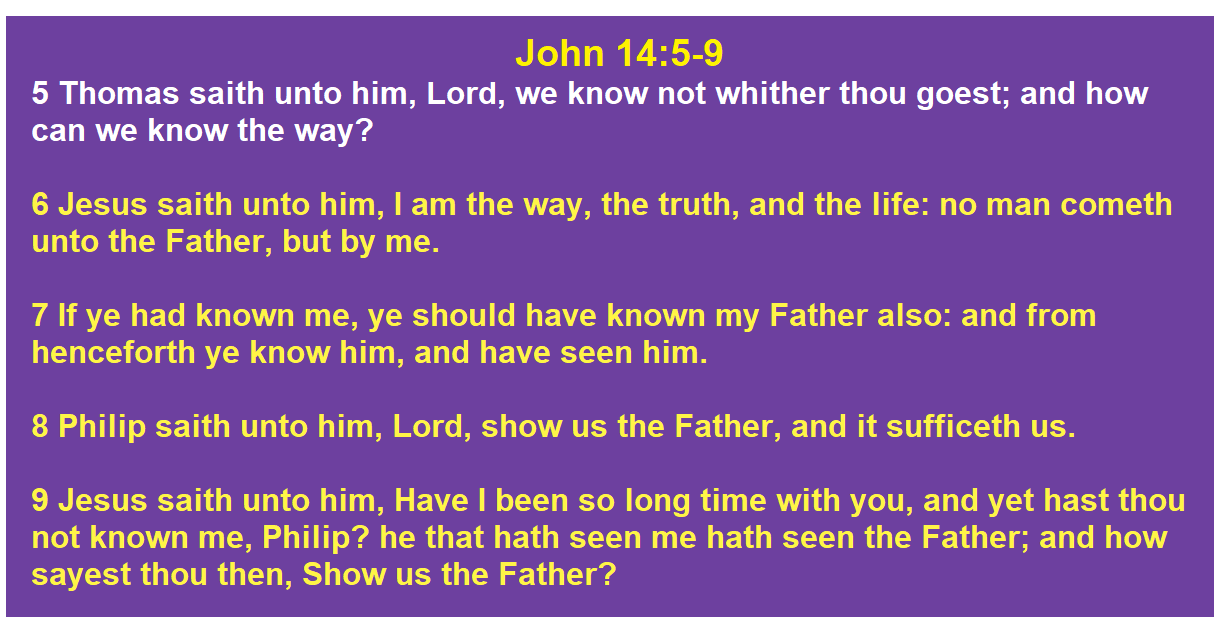
Christ affirmed His identity as the Supreme Almighty, based on His words and actions in Scripture:
In John 8:58, Jesus makes a powerful declaration of His eternal and divine nature: "Before Abraham was, I AM." This statement directly echoes the name God used to describe Himself in Exodus 3:14—"I AM WHO I AM"—when speaking to Moses at the burning bush. By using the phrase "I AM," Jesus was not only claiming pre-existence before Abraham but also identifying Himself with Yahweh, the eternal, self-existent God of Israel. This was so clear to His audience that they picked up stones to kill Him for blasphemy (John 8:59), understanding that He was making a direct claim to divinity. This is one of the clearest affirmations from Jesus about His supreme, eternal identity. Another compelling confirmation comes from John 10:30, where Jesus states, "I and the Father are one." The Greek word used for "one" here, hen, implies unity in essence or nature—not just purpose. The Jewish leaders’ reaction in the next verses confirms their understanding of His claim: "You, a mere man, claim to be God" (John 10:33). Furthermore, in Revelation 1:8, a title often ascribed to God the Father is echoed in Jesus’ words: “I am the Alpha and the Omega,” says the Lord God, “who is, and who was, and who is to come, the Almighty.” Later in Revelation 22:13, Jesus Himself says, "I am the Alpha and the Omega, the First and the Last, the Beginning and the End," clearly equating Himself with the Almighty. These statements reveal His claim to eternal existence, divine authority, and absolute supremacy. Other References: John 8:58 – Jesus’ claim: “Before Abraham was, I AM.” Exodus 3:14 – God’s name revealed to Moses: “I AM WHO I AM.” John 10:30-33 – “I and the Father are one.” Revelation 1:8 – “I am the Alpha and the Omega... the Almighty.” Revelation 22:13 – Jesus: “I am the Alpha and the Omega…” Read more
CHRISTIAN-MUSLIM HEATED DEBATE (PART 2) - FINAL
Hi friends, thank you for your patience! I’m excited to share with you part two of our ongoing debate. This has been a thorough process, as I’ve had to carefully review and compile the hours of recordings, extract key points, while at the same time, devoting time to my studies and pastoral duties. If you haven’t yet read part 1, I highly recommend you start there by clicking the link below before reading part 2. Part 1 link: https://www.facebook.com/share/p/RcSqkBJpkdZxTyaV/?mibextid=oFDknk Meanwhile, for those who have read part 1, I hope you find this second part interesting and inspiring. It is quite long because I didn't want to make any part 3, please read patiently and see how they got converted in the end. Do feel free to share your thoughts in the comments, follow for more teachings, and spread the word by sharing with others. I remain open to further discussions on this important matter. Happy reading! MUSLIM SCHOLAR: Fr. Chinaka, peace be upon you. I refer to my last message to you, stating my belief as a staunch Muslim who respects Jesus (peace be upon him) as a prophet, but I cannot accept that He claimed divinity. I believe the Bible does not contain any direct statement from Jesus where He says, “I am God, worship me.” What do you have to say about this?! FR. CHINAKA: Peace be with you too, Dr Ibrahim! Before we go deeper into this argument, I notice you’ve used the phrase “peace be upon him” when referring to Jesus several times. While I understand this is customary in Islamic tradition, I’d like to point out that, according to your own Quran, it might not be entirely appropriate to say this in reference to Jesus. In Surah 4:158, it says that Allah “raised Him up to Himself.” Therefore, if Jesus is with Allah, He is already at peace. Besides, in Surah 19:33, Jesus Himself says, “Peace be upon me the day I was born, the day I die, and the day I will be raised up to life again.” If Allah has already assured that Jesus is at peace by raising Him to Himself, saying ‘peace be upon him’ almost implies that He still requires peace just like an ordinary person who have died, as if He is not at rest. It’s somewhat like saying ‘rest in peace’ to someone who is already exalted in paradise. So, out of respect for your own Quran, I suggest we refrain from this phrase when referring to Jesus. Now, let’s address your main concern about Jesus’ divinity. You asked for a direct statement from Jesus in the Bible where He says, “I am God, worship me.” Let’s examine this step by step. First, do you accept that Jesus made other statements that, in the Jewish context, were clearly understood as claims to divinity? MUSLIM SCHOLAR: Thank you for the clarification on the phrase “peace be upon him.” I can see your point, though I’ve never thought it that way, but we use it out of respect. But in this argument, I will avoid it, for theological clarity and for your belief. That aside, on Jesus’ claim to divinity in the Jewish context, I know you're about to quote the famous “I AM.” Yes, I have seen how you argued in one of your posts that Jesus made such statement, which you interpreted as a claim to divinity. But we must be clear: Jesus never said outright that He was God. If He was truly God, wouldn't He have made that clear to avoid any confusion? What I am looking for is a direct statement. Also, the Bible says that Jesus prayed to God (e.g., in the Garden of Gethsemane). If He were God, why would He pray to another? FR. CHINAKA: I see… But let me respond to each of your points in turn. First, the Bible makes it abundantly clear that Jesus did, in fact, claim divinity in a way that His Jewish audience would immediately recognize. For instance, in John 8:58, Jesus says, “Before Abraham was, I Am.” This is not just a casual statement. The phrase “I Am” directly parallels the divine name revealed to Moses in Exodus 3:14, where God says, “I AM WHO I AM.” The Jews understood exactly what Jesus was claiming here, which is why they immediately picked up stones to kill Him for blasphemy. In a similar way, at His trial before the Sanhedrin, the High Priest asked Him directly if He was the Christ, the Son of God, and Jesus responded, “You have said so” (Matthew 26:64), affirming His identity. The High Priest tore his robes, accusing Him of blasphemy, because to claim to be the Son of God in that context was understood as claiming equality with God. Jesus made His identity known in ways consistent with Jewish understanding, and he was well understood. As for your question about why Jesus prayed to the Father, you must remember that we Christians believe in the Trinity – Father, Son, and Holy Spirit – three distinct Persons, yet one God. In His human nature, Jesus prayed to the Father, not because He was a lesser god, but because of His humility, a path He voluntarily chose as seen in Philippians 2:6-11: “Though He was in the form of God, Jesus did not count equality with God, a thing to be grasp, He humbled Himself, taking the form of a servant, being born in the likeness of men…” And you must also note that prayer doesn't always or automatically mean submission to a higher authority; rather, it can mean communication, blessing, or relationship. Just as the Quran speaks of Allah “praying” or sending blessings upon His prophets and followers in the original Arabic language (cf. Surah Al-Baqarah 2:157 and Surah Al-Ahzab 33:56), it can be understood that Jesus, as part of the Holy Trinity, prays as a means of communication with the Father, not as an act of subordination. MUSLIM SCHOLAR: Fr. CJay, I’m a very honest person. I need you to convince me more to believe this truth. While I’m still not convinced, I need this to sink into your heart – in Surah 5:116, it’s made clear that Jesus would never claim divinity. Allah will ask Jesus on the Day of Judgment, “Did you say to people, ‘Take me and my mother as gods besides Allah?’” And Jesus will respond, “Glory be to You! It was not for me to say what I had no right to say.” This proves that Jesus never claimed divinity and rejected any notion of being worshiped. FR. CHINAKA: First, nowhere in the Bible or Christian Tradition is it written for us to take both Jesus and His Mother as gods. The Christian faith upholds that the Blessed Virgin Mary be honoured, as she herself said it in the Bible “all generations will call me blessed.” (Luke 1:48), she is not divine and is never worshipped. So, while Mary is not God, Sacred Scripture, which existed 600 years before Islam, affirms strongly that Jesus is God. One of the most affirmations of Jesus' divinity is found in the opening verse of the Gospel of John: "In the beginning was the Word, and the Word was with God, and the Word was God" (John 1:1). When we place emphasis on the last couple of terms in that passage, we read: “and the Word was God" in Greek, “kai Theos ēn ho Lógos” (καὶ Θεὸς ἦν ὁ Λόγος). Here, Jesus is referred to as "the Word" (ὁ Λόγος, ho Lógos), and John is not simply calling Jesus a messenger of God or a prophet. The verse explicitly states that Jesus, as the Word, was God. This is an unambiguous declaration of Jesus’ divinity. And you know that in the Quran, Jesus is also referred to as “the Word” of Allah. In Surah 3:45, the Quran says that Jesus is “His Word” (kalimah) that He cast down to Mary and a “Spirit from Him.” This description of Jesus as the “Word” tallies with the Christian understanding of Jesus as the Word of God, which John 1:1 declares to be divine. So, the Quran, in this regard, points to something unique about Jesus – He is not created like other prophets, but rather comes directly from God as His Word and Spirit. This sets Jesus apart from all other prophets. To call Jesus simply a “mere man” or “mere prophet” is a rejection of the truth found in both the Quran and the Bible, and the fact that He is described as a spirit and Word of Allah in the Quran with titles that suggest His pre-existence and divine origin. This idea is perfected in John 1:1, which points clearly to the pre-existence of Jesus before the creation of the world. Jesus existed with God and was God even before His incarnation as a man. Therefore, Jesus cannot be just another prophet like those before Him; He is the eternal Word of God who took on human flesh (John 1:14). Thus, while the Quran recognizes Jesus as the Word of God and a Spirit from God, it stops short of acknowledging His divinity. But this Word and Spirit, who pre-existed creation and came into the world as man, cannot merely be a human prophet. His very nature as the divine Word, as affirmed in both the Bible and implicitly in the Quran, testifies to His unique identity as God. MUSLIM SCHOLAR: You seem to have made a beautiful analysis. But my doubt remains – how can a God really come down to the world as man? That is impossible! FR. CHINAKA: I understand your difficulty in accepting the idea of God becoming man Dr., as it can seem impossible from a human perspective. However, both the Quran and the Bible prove the possibility to us. Doesn’t the Quran affirm that Allah can do all things? In Surah 2:117, it says, “To Him is due the primal origin of the heavens and the earth: when He decrees a matter, He only says to it, ‘Be,’ and it is.” This means that nothing is impossible for Allah. Also, in Surah 27:8-9, Allah Himself appears to Moses in the form of a burning bush. Here, we see Allah manifesting Himself in a physical form – something created (fire). If Allah can manifest through something as simple as fire, then why should it be impossible for Him to take on human form if He so wills? And when Mary questioned how she could bear a son without a man, Allah responded, “He creates what He wills. When He decrees a matter, He only says to it, ‘Be,’ and it is.” If Allah can bring about the miraculous conception of Jesus, why should we doubt His power to come into the world as a man? So, if Allah is truly almighty, as the Quran and the Bible affirm, there should be no doubt about His ability to enter into creation, even as a human being. After all, nothing is impossible for God. If we both accept that Allah can do anything, then we should not limit His ability to reveal Himself in the manner He chooses – whether through a burning bush or by taking on human form. So, why should it be impossible for God, who created everything, to take on human flesh to save humanity? MUSLIM SCHOLAR: Sounds true, but the Quran, which is perfect, well detailed and complete does not say all these. FR. CHINAKA: I will simply tell you that the Quran, in a way, points to the Bible for its better understanding. If you read the Quran properly, and eventually hear of the Biblical truth, you should be led by the Holy Spirit to become a Christian. This is why I believe that the Quran is somehow a step in helping you become a Christian. Now, consider the areas that talk about the life of Christ… This is most likely to have been drawn from pseudo-gospels or non-canonical Christian writings because the stories of Jesus in the Quran resemble stories found in those non-canonical literatures that were not accepted into the Bible in the fourth century (before Islam). For instance, the story of Jesus’ Speaking as an Infant in Surah 19:29-30, depicting Jesus talking while still in the cradle. This story is not found in the canonical Gospels but is present in the Infancy Gospel of St. Thomas, a non-canonical text from early Christianity. This raises the question: if the Quran is supposed to be a direct revelation from God, why does it include a story absent from the canonical Gospels but present in what we refer to as false (apocryphal) texts? The Infancy Gospel of Thomas was not accepted by early Christian communities due to its speculative nature. Also, in Surah 3:49 and Surah 5:110, the Quran describes Jesus creating birds from clay and breathing life into them. This miracle is not recorded in the canonical Gospels in the Bible but is found in the Infancy Gospel of St. Thomas, an apocryphal text written 600 years before Islam and known in the Christian Community then. Now, as the Quran portrays Jesus as a prophet and servant of Allah, denying His divinity (Surah 4:171), this idea is not strange for it mirrors certain Gnostic ideas, such as those found in the Gospel of Barnabas and other apocryphal texts, where Jesus is described in purely human terms, denying His divine nature. The Gnostic tradition, which was considered heretical by the early Church, viewed Jesus as a lesser, purely human figure or a divine being in disguise, depending on the specific text. Thus, the Islamic narrative of Jesus seems more in line with these heretical views of early Christianity even before the advent of Islam. Lemme drop my last point before I present the major points before you. The Quran denies the crucifixion of Jesus in Surah 4:157, stating that it was made to appear as though Jesus was crucified but that He was not actually killed. Even this belief parallels the teachings of some Gnostic sects, like the Gospel of Judas, where Gnostic beliefs portray Jesus as not suffering physically on the cross, or where someone else is substituted in his place. The Gospel of Judas, a Gnostic text dated to the 2nd century, presents a unique perspective where Judas Iscariot is depicted as playing a role in releasing Jesus from his physical body, suggesting that Jesus did not undergo physical suffering in the same way that orthodox Christian teachings hold. This doctrine was rejected by the early Church as heretical way before Islam arrived. The resemblance of this Quranic claim to Gnostic ideas raises questions about the sources the Quran drew upon. These are critical and serious issues that I need clear responses from you, doctor! MUSLIM SCHOLAR: Wait! let’s come on Google Meet, Hassan my colleague has a lot to tell you. We’ve been together since lunch time. I will send you the link shortly. FR. CHINAKA: [Thinking 💭 aloud, oh, I’ve been arguing against two...] Alright, lemme make my environment conducive, and do not forget to record it. [GOOGLE MEET SESSION…] MUSLIM SCHOLARS: [Hassan speaks up…] Thanks for raising all these claims. Returning to your argument that Islam copied from your apocryphal gospels, we know for sure that Islam did not copy or borrow ideas from the Gnostic Gospels or the false gospels that were removed. That they appear in the Quran simply indicates Allah’s way of validating that those gospels you took off your Bible were indeed valid and that Christianity was mistaken, and Islam needed to come and rectify the falsity in Christianity. FR. CHINAKA: Wow! I’m speechless. You've not answered my questions. I’ll take it as your “escapist statement.” No worries… Let us deal with the crux of our argument. Since your main argument is for me to show you in the Bible where Jesus says “I’m God, worship me.” Before answering you directly, I’d also like to ask you: you both accept that Jesus is the Messiah and a prophet, correct? Where in the Quran does Jesus say, “I am the Messiah” or “I am a prophet”? MUSLIM SCHOLARS: Yes, Jesus is a Prophet and the Messiah. However, Jesus does not explicitly say, “I am the Messiah” or “I am a prophet” in the Quran, but I believe it because Allah revealed it in the Quran. Since you claim to know the Quran, take your mind to Surah 3:45, Allah says that Jesus is the Messiah. So, we accept what Allah has revealed. But still, this is different from claiming divinity. There is nothing in the Bible where Jesus explicitly says He is God. Even if the Jews misunderstood His statements, that doesn’t mean He was claiming to be God. Prove this, and I will become a Christian! FR. CHINAKA: Ok, you are willing to accept that Jesus is the Messiah based on what Allah says in the Quran, even though Jesus Himself does not make that claim explicitly. I see! So, going by your logic, then, shouldn't you also accept what God says about Jesus in the Bible, even if Jesus does not say it in the exact words you are looking for? MUSLIM SCHOLARS: How exactly do you mean? FR. CHINAKA: For instance, in Hebrews 1:8, God the Father speaks of Jesus: “But of the Son He says, ‘Your throne, O God, is forever and ever, the sceptre of justice is the sceptre of Your kingdom.’” Here, God Himself calls Jesus “God.” This is a divine affirmation of Jesus’ identity, much like how Allah affirms Jesus as the Messiah in the Quran. Do you agree to this? [I noticed the confusion between both of them, one checking his phone to browse the Bible online, while the other who couldn’t hide his confusion, mutters some unintelligible words] MUSLIM SCHOLARS: [Hassan spoke up, while still checking his phone]. You said Hebrews chapter 1 verse what? FR. CHINAKA: Verse 8, but read from verse 5 to understand the context. MUSLIM SCHOLARS: [Reading…and reaching verse 8…]: “But of the Son He says, ‘Your throne, O God, is forever and ever, the sceptre of justice is the sceptre of Your kingdom.’” [One of them letting out a sigh, and says to the other, what do you think? Then they muted the video and spoke for a minute, in what seemed like a kind of dispute or mini conflict among them, and Hassan said]: But should I build my faith only on this Scriptural verse to prove Jesus is God? It is not so solid for us [Dr. Ibrahim interrupted, speak for yourself, for me, it is clear. And Hassam asked again]: show me from the Bible other proofs of Jesus’ divinity? FR. CHINAKA: Okay, I expected this question, and I’m prepared for it. Let’s turn to Revelation 1:17-18, where Jesus says, “I am the First and the Last, and the Living One. I died, and behold I am alive forevermore.” Now, compare this to Surah 57:3 in the Quran, where Allah is described as “the First and the Last.” How do you reconcile the fact that both Jesus and Allah claim this title? Mind you, the Scriptures were written about 600 years before Islam. MUSLIM SCHOLARS: [Hassan speaks up]. Well, we believe this title belongs only to Allah. But still, I am cautious because we believe the Bible has been altered and corrupted over time. Even though these passages may exist, we cannot trust them fully. FR. CHINAKA: But let’s be clear: the Quran itself never claims that the Torah and the Gospels were completely corrupted. Surah 5:47 even says, “Let the people of the Gospel judge by what Allah has revealed therein.” If the Gospels were truly corrupted, why would Allah tell the Christians to judge by them? The Bible, especially the New Testament, was written by eyewitnesses and those who received testimony from eyewitnesses. These texts were preserved with care. The message of Jesus' divinity is consistent throughout the New Testament. You asked for a clear statement from Jesus, and while He does not literally say “I am God, worship me” in those exact words, His actions, titles, and the divine affirmation from both God the Father and Himself leave no doubt about His divinity. If you accept Allah’s revelation about Jesus being the Messiah, why not accept God’s revelation in the Bible that Jesus is also divine? Okay, let me return to Jesus as the Word of Allah, according to your Quran. Now, I need your response – true/false: In human terms, when a person speaks a word, that word is intrinsically linked to the speaker. It reflects the nature of the person speaking. A human's word, therefore, is human. True/False? MUSLIM SCHOLARS: [Both answered unanimously] True! FR. CHINAKA: Thank you for your honest response. The Quran explicitly refers to Jesus as the "Word of Allah" in Surah 4:171. This phrase, "His Word," carries great implications, and I will prove it. If Allah, who is divine, speaks a word, that word cannot be anything less than divine because the very nature of the word must be reflective of the nature of the one who utters it. If Jesus is the "Word of Allah," then He shares in the divine essence because Allah’s word cannot be mere creation; it must be a part of His eternal nature. Even, this is also supported in Surah 3:45, where Jesus is called a "Word from Him," further strengthening our understanding of the unique and eternal nature of Jesus. Do you agree with this? MUSLIM SCHOLARS: [Dr. Ibrahim answers Yes, while Hassan remains quiet]. Then Dr. Ibrahim added, what about the words of Jesus? If the Word of Allah is divine as you have shown, and equally illustrated as Jesus, how about the words of Jesus, which being would it produce? And please, I want us to continue this argument the video, maybe returning to Facebook Messenger. [Google Meet video call ends…and I quickly went to Messenger to drop the response] FR. CHINAKA: Greetings, Dr. Ibrahim. I trust you are good today. Returning to your last question concerning Jesus’ words, the Bible answers this directly where Jesus Himself says: “The words that I have spoken to you are spirit and life.” (John 6:63). Here, Jesus is clearly saying that His words are not just ordinary words but are spiritual and life-giving, the same with the Father. This also explains why in John 5:25, Jesus says: "Truly, truly, I say to you, an hour is coming, and is now here, when the dead will hear the voice of the Son of God, and those who hear will live." This is an indication of Jesus' divine authority and power over life and death. He proclaims that at the sound of His voice – the Word of God – the dead will rise. And remember that the Quran, in Surah 2:258, states that Allah is the one who gives life and death. So, when we connect this with John 5:25, where Jesus says, “the dead will hear the voice of the Son of God, and those who hear will live,” we see a strong parallel. Jesus is claiming the very power that the Quran attributes solely to Allah – He can give life through His word. This is a direct assertion of divine authority. Jesus, by His word, can raise the dead, both spiritually and physically, just as Allah is described as the one who gives life in the Quran. Also, in John 11:25, Jesus further weighs into this truth by declaring, "I am the resurrection and the life. Whoever believes in me, though he die, yet shall he live." This shows that Jesus not only speaks of life but is Himself the source of life, an ability that, according to the Quran, belongs to Allah alone. Therefore, He that gives me life, that is in fact, my hope of resurrection and life will always be my God. [Message delivered and seen on Messenger but there was no response until after three days] MUSLIM SCHOLARS: Hello, dear brother! How are you? We were not disposed for this discussion for some days, because we needed to make more research and ask more questions from other colleagues after our Jumu'ah, but the answers we got were not sufficient enough to convince us, and I was disappointed. Hassan will travel to Egypt by next week and stay for a while before I join him because his visit visa is due, but believe us, both of us have understood you properly, having taken into consideration all you have put together. Remember, I told you “I’m a honest person.” I never understood all these the way you’ve explained, and to be honest, we are holding unto these teachings for now. We need you to compile all these are send to us. We can talk better on the phone. Before we end our chat, I would like to ask whether you have more truths from the Quran about Jesus’ divinity? FR. CHINAKA: Hello, dear brothers! I am glad to hear from you and even more encouraged that our discussions have been fruitful. Your openness and honesty are deeply appreciated, and I will gladly compile everything we've covered so far and send it to you. It’s important that these matters are understood clearly and that we approach them with sincerity, just as you’ve done. Well, there are a host of points that could be made for you from the Quran pointing to the divinity of Jesus. Before we close up this chapter, I will like to clarify further one of my earlier points regarding Surah 3:55, which says that Allah raised Jesus to Himself: “Allah said, O Isa (Jesus), I will take you and raise you to Myself...” Here, the Quran is clear that Jesus was taken up to Allah. Now, Surah 57:4 says that Allah is above all creation, beyond space and time. If Allah raised Jesus to Himself, and Allah is above all creation, then Jesus too must be above all creation. And if Jesus is raised to be with Allah, and Allah is above creation, Jesus cannot be a creature, for a creature can never exist above creation. He must partake in a divine reality, which makes Him more than a prophet or a servant. MUSLIM SCHOLAR: Awesome! Jesus bless you, Father Chinaka! The reality gets better. I expect your compiled teachings. Also, which Church should we go to so that a Roman Catholic Priest like you can also tutor us likewise? And can we receive the Communion? Brother Hassan sends his greetings. FR. CHINAKA: I’ll compile the teachings Dr., but I also need you to send me the recorded videos to compile them all. Check for the nearby Roman Catholic Church in your vicinity, and introduce yourselves to the Parish Priest, and also explain your situation. Before you receive Holy Communion, you have to undergo a period of Catechesis in order to understand the faith more deeply, learn the teachings of the Church, and prepare your hearts and minds to fully embrace the Sacraments. This process will guide you through the foundational aspects of the Christian faith, including the sacraments, the Holy Trinity, the divinity of Christ, and the significance of the Eucharist. Once you have completed this formation, and after further discernment, you will be able to receive the sacraments, including Baptism and Holy Communion. Meanwhile, I’ll assist your conversion journey by preparing a one-year catechetical plan. So, we are in this together, okay. Feel free to reach out to me or your local priest if you have any questions or concerns during this journey. I'm here to support you every step of the way. MUSLIM SCHOLAR: You can suspend the doctor title, please. I feel so embarrassed with it. I will send the video, but do not publish them yet. You can go ahead and compile the teachings and publish them for other Muslim brothers. It is highly inspirational. Thank you once again, Catholic Priest. FR. CHINAKA: You are always welcome, my friend. I pray that God will guide you on your journey. If you ever have more questions, feel free to reach out again. I'm at your pastoral service. Peace be with you (Shalom). [THE END...] Dear friends, let's have our deer brothers and new converts - Ibrahim and Hassan in our prayers. You're free to share this post... Fr. Chinaka Justin Mbaeri, OSJ #SoulOfAMissionary Read more
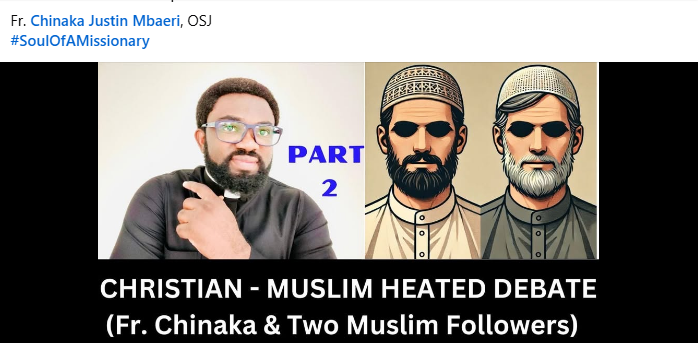
CHRISTIAN - MUSLIM HEATED DEBATE (Part 1)
CHRISTIAN - MUSLIM HEATED DEBATE (Part 1) Dear friends, I present to you the long-awaited compilation of the arguments and debates with my new friends - the newly converted Christians, who were previously Muslim scholars at the time of the debate. Bear in mind that this compilation is to enable you to understand the kind of questions asked by Muslims and how to clarify and also refute attacks against the Christian faith. I selected the basic conversations from the chats with the two friends on Facebook and Google Meet Videos, and thus, present them in a systematic and improved way here. This is just part 1, part 2 is the heart of our debate, which led to their conversion. Do share with others as you come across this piece... Happy reading! MUSLIM SCHOLARS: Fr. Chinaka, peace be upon you. I have been following your posts for the last three weeks, especially the rebuttal you wrote against Reno Omokri’s claims. Your Greek exegesis caught my attention, but I have my reservations. I believe you may have misinterpreted some key passages regarding Jesus (peace be upon him) and His role in Christianity. First of all, can I meet you? I also have a colleague of mine who shall also contact you here on messenger and also get to debate you on video. FR. CHINAKA: Hmmm, peace be with you sir, and nice to meet you here. I'm open to further discussion regarding the Christian faith, and particularly, the divinity of Jesus. I'm Fr. Chinaka (Fr. CJay), a missionary Priest serving in São Paulo Archdiocese, Brazil. Could we discuss this tomorrow? I'm in school for the whole day today. So, who am I chatting with? MUSLIM SCHOLAR: I'm Dr. Ibrahim, currently in Houston, Texas. I've got my Ijazah - Certificate of Authority to Teach and interpret Islamic sciences, such as Quranic exegesis (tafsir), Hadith, and Islamic law (fiqh). I also have my Ph.D. (Doctorate in Islamic Studies). So, you can call me doctor. I see on your page that you're a Bible scholar and an Exegete, and you mentioned that you were in school the other day. Are you a student or lecturer? So, what's your academic qualification? FR. CHINAKA: (Thinking aloud 💭 ...Hmmm, this guy wants to begin by intimidating me with his fat qualifications and degrees sha, but there's no need to go that route with him. I'll tell him it's not necessary jare). Dr. Ibrahim, could we just forget about the academic qualifications here? I'm simply a Roman Catholic Priest. You can address me as Fr. CJay or Chinaka. So, what are your reservations concerning Christianity, the Bible and the divinity of Jesus Christ? MUSLIM SCHOLAR: Good morning, Fr. CJay. I'll respect your wish. So, Fr. CJay, as you know, we Muslims regard Jesus as a prophet and the Messiah, but we cannot accept the claim that He is divine. I would like to engage you in a respectful dialogue because, as far as I know, there is no place in the Bible where Jesus explicitly says, “I am God, worship me." But before we discuss further, I'd like to point out various contradictions in Christianity, for the Bible is full of contradictions and inconsistencies. It has been changed many times, and there are multiple versions. How can Christians claim that it is the Word of God when it has been altered over the centuries? The Quran, on the other hand, is perfect and without contradiction. It is clear, fully explained, and unchanged since it was revealed. Allah said in Surah 2:85 that the Quran is fully detailed. Can we discuss this on Google Meet or Zoom? We can record if you don't mind. FR. CHINAKA: [Fast forward to Google Meet session] Before I address the issue of contradictions and versions, let's clarify the nature of the Bible. The Bible is not a single book; it is a collection of writings spanning thousands of years, written by different authors in different contexts, all inspired by God. Its purpose is not to provide a manual on every scientific or historical detail but to guide humanity in faith and morals. Yes, there are different translations based on manuscript traditions, but the message remains coherent across versions. Now, you mentioned contradictions in the Bible. Most of what you Muslims point out as contradictions are either misunderstandings of the text, or you fail to recognize the literary genres used. For instance, the apparent differences in the Gospels are not contradictions but different perspectives on the same events. Let me ask you: if four different people describe the same event in their words, would their accounts be identical? Of course not, but they can still present the truth of what happened. Let’s now talk about the Quran. You claim the Quran has no contradictions. However, in my study of Islam, I discovered that Surah 2:62 says: "Indeed, those who believed, and those who were Jews or Christians or Sabeans - those who believed in Allah and the Last Day and did righteousness - will have their reward with their Lord, and no fear will there be concerning them, nor will they grieve." But in Surah 3:85, it says: "And whoever desires other than Islam as a religion - never will it be accepted from him, and he, in the Hereafter, will be among the losers." Now, do Jews and Christians have hope for salvation as Surah 2:62 suggests, or will they be condemned as Surah 3:85 states? This is a direct contradiction, despite the Quran’s claim in Surah 4:82 that 'had it been from any other than Allah, they would have found within it much contradiction.' MUSLIM SCHOLAR: You're misinterpreting the verses. The Quran is clear and fully explained in everything. Surah 16:89 says, 'We have sent down to you the Book as clarification for all things.' These two verses are not contradictory; they refer to different times. Surah 2:62 refers to those before the coming of Islam, and Surah 3:85 refers to those after Islam has been revealed. FR. CHINAKA: That looks like a convenient explanation, but it doesn’t hold up. If Surah 16:89 claims that the Quran clarifies everything, why does the Quran have verses that even Islamic scholars admit are 'allegorical' and impossible to fully understand? In Surah 3:7, it says: 'It is He who has sent down to you, [O Muhammad], the Book; in it are verses [that are] precise - they are the foundation of the Book - and others unspecific.' So, are all things fully explained or not? If you say the unclear verses are allegorical, how can you claim that the Quran is completely clear and fully detailed? Also, your explanation of Surah 2:62 and Surah 3:85 doesn’t solve the problem. There is no clear indication in the Quran that these verses refer to different periods You’re reading into the text to justify the contradiction. You see, this is why Christians interpret Scripture through the Church and guided tradition, ensuring that the message remains coherent over time. Meanwhile, Islamic scholars have differing interpretations of these same 'fully explained' verses. As for the claim that the Quran has never been changed, historical evidence proves otherwise. The Quran we have today was finalized under Uthman, the third caliph, who ordered the destruction of other Quranic versions to preserve uniformity (Sahih al-Bukhari 4987). And if you must know, the Quran underwent revisions over centuries, with different dialects and readings. In fact, the Cairo edition of the Quran, which is widely used today, was printed in the 1920s based on the 'Hafs' reading, one of many variants. So, stop accusing the Bible of having many versions and aiming the Quran is so perfect without contradictions. You and I know that is not true, and those who truly know the history of the Quran like I do, know where your loopholes stand. MUSLIM SCHOLAR: Well, I'll research what you've said and get back to you. Let me pass this on to my brother Hassan to clarify you better. [Hassan speaks up] Fr. Chinaka, Allah promised to preserve the Quran, which is why we believe it is perfect. In Surah 15:9, it says, 'Indeed, it is We who sent down the Quran and indeed, We will be its guardian.' The Uthmanic codification was part of Allah's plan to ensure that the Quran remained unchanged. While there were different readings, the core message has always been the same. (Network glitch... Google Meet call ended abruptly... The next is on Facebook Messenger) FR. CHINAKA: Hi Doctor, how're you doing today? Returning to our last conversation which left us with many unclear stands... Now, if Allah promised to guard the Quran from change, why were there different readings to begin with? Why did Uthman need to destroy other copies? If the Quran was truly preserved from the start, such differences should not have existed at all. Moreover, your claim about the Quran’s clarity and lack of contradictions is problematic because the Quran itself claims in Surah 39:23 that it is consistent and free of error. Yet we’ve already seen that contradictions exist. In addition to Surah 2:62 and Surah 3:85, consider the issue of whether there is compulsion in religion. Surah 2:256 says, 'There shall be no compulsion in religion,' but Surah 9:29 commands Muslims to fight those who do not believe in Allah. How can these two verses be reconciled? This is not to mention other inconsistencies, such as the different creation accounts in Surah 41:9-12, where the timeline for the creation of the earth and heavens doesn’t tally with other parts of the Quran. MUSLIM SCHOLAR: My brother, Fr. Chinaka! Peace be upon you. These verses can be explained by scholars. I'll reach out to my colleagues and return to you. Besides, there is no real contradiction if you understand the context of each passage in the Quran. FR. CHINAKA: Hmmm, I see! [smiling] Context is important, but if the Quran claims to be fully detailed, then these contradictions should not exist, nor should they require outside explanations. Meanwhile, the Bible, despite being written over centuries by different human authors, remains consistent in its message of salvation through Jesus Christ. Any seeming contradictions in the Bible can be explained through understanding the different literary forms, contexts, and purposes of the writings. The Bible, unlike the Quran, doesn’t claim to be a fully explained book of everything but a sacred text to guide believers in faith. So, while you assert the Bible has been corrupted, it is in fact the Quran that shows inconsistencies both in its content and its historical transmission and in fact, corrupted. The Bible, on the other hand, has stood the test of time, and its message remains unchanged - salvation is found in Christ alone. MUSLIM SCHOLAR: Well, can we leave this argument and focus more on Jesus Christ's claim of divinity? In this area, I'm convinced you have no escape route. See, as a Muslim, I revere Jesus as a prophet, but I cannot accept that He claimed divinity. I believe the Bible does not contain any direct statement from Jesus where He says, “I am God, worship me.” Let's look into this and I can't wait to see your false claims and refute you. Salam, brother! FR. CHINAKA: I'm quite tired now, and I've got classes tomorrow. I hope to engage you by the weekend. How about that? MUSLIM SCHOLAR: Sure, Fr. Chinaka. Talk to you later. Salam! Click on the link below for part 2 https://www.facebook.com/share/p/px7GJth172My5ftY/?mibextid=oFDknk Do share with others too and let us know how this argument has touched you. Shalom! ©️ Fr. Chinaka Justin Mbaeri, OSJ #SoulOfAMissionary All reactions: Read more
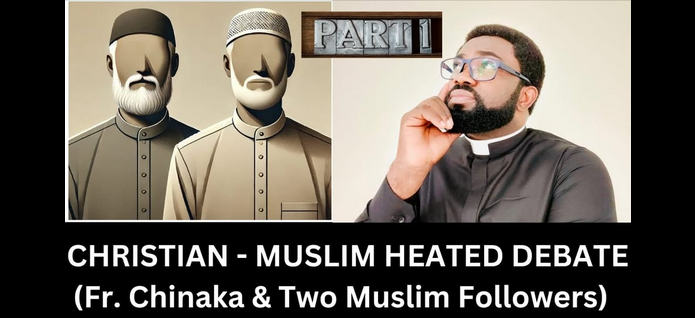
Christ and the Temple Tax
In Matthew 17:24-27, Jesus and His disciples arrive in Capernaum, where tax collectors approach Peter, asking whether Jesus pays the temple tax. This tax, rooted in Exodus 30:13-16, was a half-shekel offering required of every Jewish male for the maintenance of the temple. Peter affirms that Jesus does pay it, but when he enters the house, Jesus anticipates his question and teaches a deeper lesson. He asks Peter whether kings tax their own children or strangers, to which Peter replies, "strangers." Jesus then declares, "Then the children are free," implying that, as the Son of God, He is exempt from paying a tax meant for His Father's house. Despite His exemption, Jesus instructs Peter to go to the sea, cast a hook, and take the first fish he catches, which miraculously contains a coin sufficient for both their taxes (Matthew 17:27). This act demonstrates Jesus’ divine authority over creation while also illustrating humility and submission to avoid causing unnecessary offense. Rather than asserting His rights, He willingly complies, setting an example of wisdom and peace in dealing with authorities. This passage reveals Jesus’ identity as the divine Son and the ultimate fulfillment of the temple’s purpose. It also teaches believers about responsible citizenship, balancing spiritual freedom with social responsibility. Romans 13:7 reinforces this principle by urging believers to give due respect and taxes where required. While Jesus was not obligated to pay the temple tax, His decision to do so models humility, obedience, and the greater mission of leading others to God through His example. Read more
13 I saw in the night visions, and, behold, one like the Son of man came with the clouds of heaven, and came to the Ancient of days, and they b......
14 And there was given him dominion, and glory, and a kingdom, that all people, nations, and languages, should serve him: his dominion is an ev......
10 And I will pour upon the house of David, and upon the inhabitants of Jerusalem, the spirit of grace and of supplications: and they shall loo......
43 He saith unto them, How then doth David in spirit call him Lord, saying,...
44 The Lord said unto my Lord, Sit thou on my right hand, till I make thine enemies thy footstool?...
45 If David then call him Lord, how is he his son?...
13 Looking for that blessed hope, and the glorious appearing of the great God and our Saviour Jesus Christ;...
4 And they journeyed from mount Hor by the way of the Red sea, to compass the land of Edom: and the soul of the people was much discouraged be......
5 And the people spake against God, and against Moses, Wherefore have ye brought us up out of Egypt to die in the wilderness? for there is no......
6 And the Lord sent fiery serpents among the people, and they bit the people; and much people of Israel died....
7 Therefore the people came to Moses, and said, We have sinned, for we have spoken against the Lord, and against thee; pray unto the Lord, tha......
8 And the Lord said unto Moses, Make thee a fiery serpent, and set it upon a pole: and it shall come to pass, that every one that is bitten, w......
9 And Moses made a serpent of brass, and put it upon a pole, and it came to pass, that if a serpent had bitten any man, when he beheld the ser......
14 And as Moses lifted up the serpent in the wilderness, even so must the Son of man be lifted up:...
15 That whosoever believeth in him should not perish, but have eternal life....
18 Forasmuch as ye know that ye were not redeemed with corruptible things, as silver and gold, from your vain conversation received by traditio......
19 But with the precious blood of Christ, as of a lamb without blemish and without spot:...
20 Who verily was foreordained before the foundation of the world, but was manifest in these last times for you,...
54 So when this corruptible shall have put on incorruption, and this mortal shall have put on immortality, then shall be brought to pass the sa......
55 O death, where is thy sting? O grave, where is thy victory?...
10 Of which salvation the prophets have enquired and searched diligently, who prophesied of the grace that should come unto you:...
11 Searching what, or what manner of time the Spirit of Christ which was in them did signify, when it testified beforehand the sufferings of Ch......
41 While the Pharisees were gathered together, Jesus asked them,...
42 Saying, What think ye of Christ? whose son is he? They say unto him, The son of David....
43 He saith unto them, How then doth David in spirit call him Lord, saying,...
44 The Lord said unto my Lord, Sit thou on my right hand, till I make thine enemies thy footstool?...
45 If David then call him Lord, how is he his son?...
25 Then he said unto them, O fools, and slow of heart to believe all that the prophets have spoken:...
26 Ought not Christ to have suffered these things, and to enter into his glory?...
27 And beginning at Moses and all the prophets, he expounded unto them in all the scriptures the things concerning himself....
19 What? know ye not that your body is the temple of the Holy Ghost which is in you, which ye have of God, and ye are not your own?...
20 For ye are bought with a price: therefore glorify God in your body, and in your spirit, which are Gods....
13 Let us walk honestly, as in the day; not in rioting and drunkenness, not in chambering and wantonness, not in strife and envying....
14 But put ye on the Lord Jesus Christ, and make not provision for the flesh, to fulfil the lusts thereof....
9 Know ye not that the unrighteous shall not inherit the kingdom of God? Be not deceived: neither fornicators, nor idolaters, nor adulterers,......
10 Nor thieves, nor covetous, nor drunkards, nor revilers, nor extortioners, shall inherit the kingdom of God....
13 Wherefore gird up the loins of your mind, be sober, and hope to the end for the grace that is to be brought unto you at the revelation of Je......
14 As obedient children, not fashioning yourselves according to the former lusts in your ignorance:...
31 Wherefore I say unto you, All manner of sin and blasphemy shall be forgiven unto men: but the blasphemy against the Holy Ghost shall not be......
32 And whosoever speaketh a word against the Son of man, it shall be forgiven him: but whosoever speaketh against the Holy Ghost, it shall not......
7 But if we walk in the light, as he is in the light, we have fellowship one with another, and the blood of Jesus Christ his Son cleanseth us......
8 If we say that we have no sin, we deceive ourselves, and the truth is not in us....
9 If we confess our sins, he is faithful and just to forgive us our sins, and to cleanse us from all unrighteousness....
10 If we say that we have not sinned, we make him a liar, and his word is not in us....
Confidentiality, Gossip, and Openness in the Body of Christ God calls on Christians to disclose their problems to one another (Galatians 6:2; James 5:16). But is it ever right to discuss another’s problem with a third party? What about leadership teams that need to decide what to do with a member? What about a lay counselor who needs help discerning a tough situation? What about a friend who knows something serious about another friend, but the other friend won’t agree to disclose the problem? What about a friend who says, “I’ve got something to share, but you have to promise not to tell anyone,” or “By the way, what I told you was in confidence”? The Biblical Position Like so many issues, when viewing things under grace we are not given black and white prescriptions on exactly how to handle each situation. The Bible lays out key principles, the biggest being love. The best way to love someone is not one-size fits all. Believers are supposed to follow the Holy Spirit’s leading while growing in their own discernment. As they grow in discernment, they will develop an ability to sense what the most loving stance is to take in each situation. On the one hand, Scripture speaks strongly against gossip. Proverbs 20:19 - “…do not associate with a gossip.” (See also Proverbs 11:13a; 16:27,28; 17:9b) Romans 1:29; 2 Corinthians 12:20 – Both differentiate gossip from slander and condemn it as the result of a depraved mind, unfitting for Christians. 1 Timothy 5:13; 2 Thessalonians 3:11 – Both condemn “busybodies” who “speak about things not proper to mention.” Likewise, some passages defend the idea of confidentiality. Proverbs 11:13 – “He who goes about as a talebearer reveals secrets, but he who is trustworthy conceals a matter.” Proverbs. 17:9a - “He who covers a transgression seeks love, but he who repeats a matter separates intimate friends.” Proverbs 20:19 – “He who goes about as a slanderer reveals secrets, therefore do not associate with a gossip.” Proverbs 25:9-10 - “…don’t reveal the secret of another, lest he who hears it reproach you, and the evil report about you not pass away.” Matthew 18:15 - “If your brother sins, go and reprove him in private…” This implies the desirability of resolving the matter one on one. We have all seen the wreckage that gossip can cause: feelings hurt, trust destroyed, relationships ruined – and above all, an atmosphere of mistrust and fear. People feel reluctant to open up out of fear people will broadcast it. Also, people may not open up about serious problems, or may sanitize their versions of those problems unless we can offer them the safety of confidentiality. Merely avoiding gossip isn’t enough. While the Scripture above shows a value for confidentiality between friends, the following passages signal a scriptural value for transparency. Take, for example, disciplinary cases involving objective and damaging sin. Matthew 18:16, 17 – The same passage that recommends resolving it in private commands making it public if necessary. Galatians 6:1 – It must be a public matter if someone was “caught in sin.” 1 Timothy 5:20 – Paul tells Timothy that an elder who “continues in sin” should be rebuked “in the presence of all.” We may conclude from passages like these that we do not have the right to insist that other Christians cover up our sins. Other passages indicate that discussing others’ sins may be necessary for the healthy working of the local church.
13 And withal they learn to be idle, wandering about from house to house; and not only idle, but tattlers also and busybodies, speaking things......
14 I will therefore that the younger women marry, bear children, guide the house, give none occasion to the adversary to speak reproachfully....
15 For some are already turned aside after Satan....
21 As coals are to burning coals, and wood to fire; so is a contentious man to kindle strife....
22 The words of a talebearer are as wounds, and they go down into the innermost parts of the belly....
19 He that goeth about as a talebearer revealeth secrets: therefore meddle not with him that flattereth with his lips....
15 But let none of you suffer as a murderer, or as a thief, or as an evildoer, or as a busybody in other mens matters....
36 But I say unto you, That every idle word that men shall speak, they shall give account thereof in the day of judgment....
37 For by thy words thou shalt be justified, and by thy words thou shalt be condemned....
6 A fools lips enter into contention, and his mouth calleth for strokes....
7 A fools mouth is his destruction, and his lips are the snare of his soul....
8 The words of a talebearer are as wounds, and they go down into the innermost parts of the belly....
30 And all the tithe of the land, whether of the seed of the land, or of the fruit of the tree, is the Lords: it is holy unto the Lord....
16 Three times in a year shall all thy males appear before the Lord thy God in the place which he shall choose; in the feast of unleavened brea......
17 Every man shall give as he is able, according to the blessing of the Lord thy God which he hath given thee...
1 And it shall be, when thou art come in unto the land which the Lord thy God giveth thee for an inheritance, and possessest it, and dwellest......
2 That thou shalt take of the first of all the fruit of the earth, which thou shalt bring of thy land that the Lord thy God giveth thee, and shalt put i.....
8 Will a man rob God? Yet ye have robbed me. But ye say, Wherein have we robbed thee? In tithes and offerings....
9 Ye are cursed with a curse: for ye have robbed me, even this whole nation...
10 Bring ye all the tithes into the storehouse, that there may be meat in mine house, and prove me now herewith, saith the Lord of hosts, if I will not o.....
28 And the rest of the people, the priests, the Levites, the porters, the singers, the Nethinims, and all they that had separated themselves fr......
29 They clave to their brethren, their nobles, and entered into a curse, and into an oath, to walk in Gods law, which was given by Moses the servant of G.....
10 And I perceived that the portions of the Levites had not been given them: for the Levites and the singers, that did the work, were fled ever......
11 Then contended I with the rulers, and said, Why is the house of God forsaken? And I gathered them together, and set them in their place...
12 Then brought all Judah the tithe of the corn and the new wine and the oil unto the treasuries...
Lightupglo: Search, Read, Study the Bible in Many Languages
Privacy Policy | Terms of Use | Need Help
Lightupglo © 2025 All rights reserved.
Add your first Bible Passage in the table
Why are you reporting this content?
Why are you reporting this content?



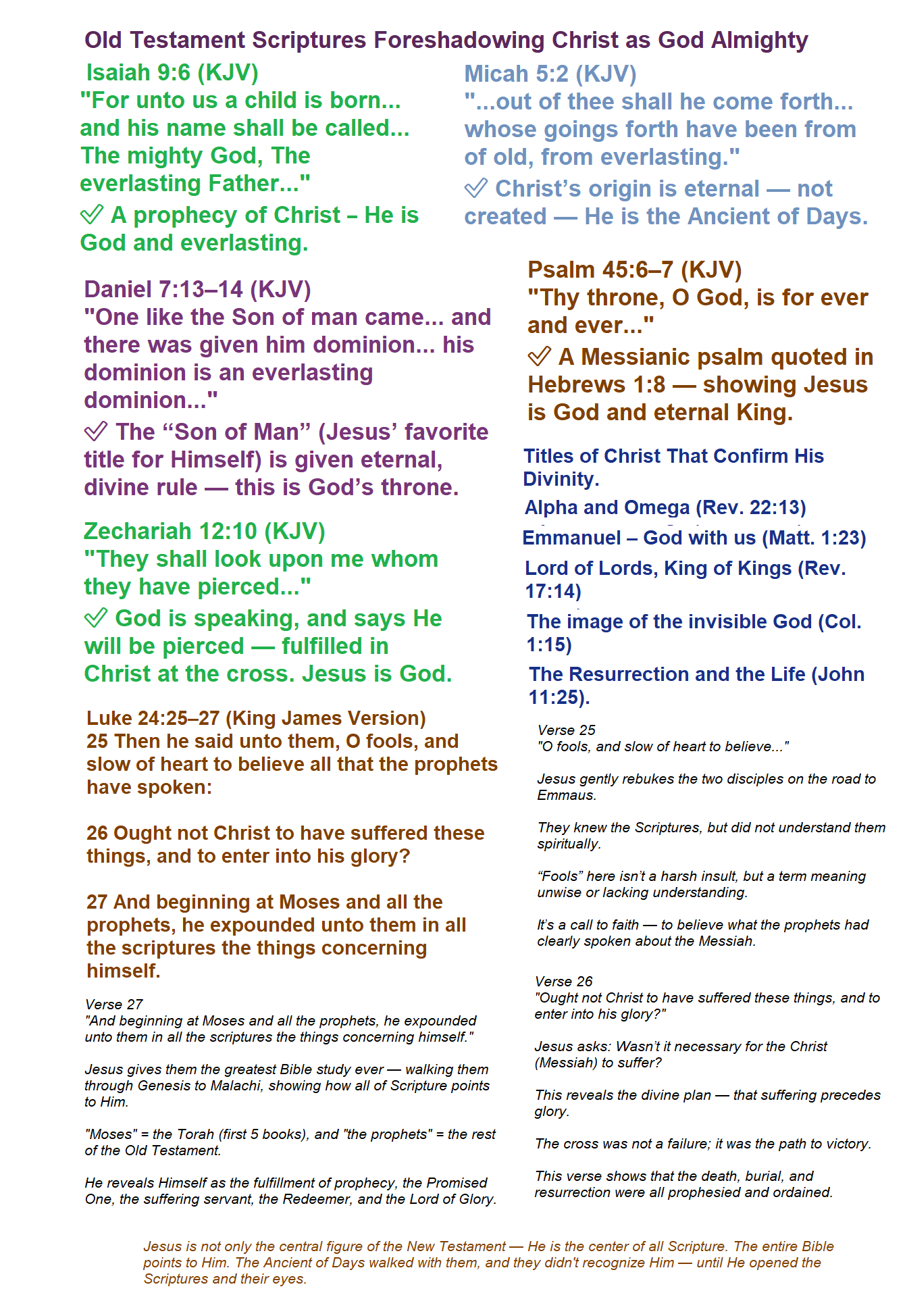
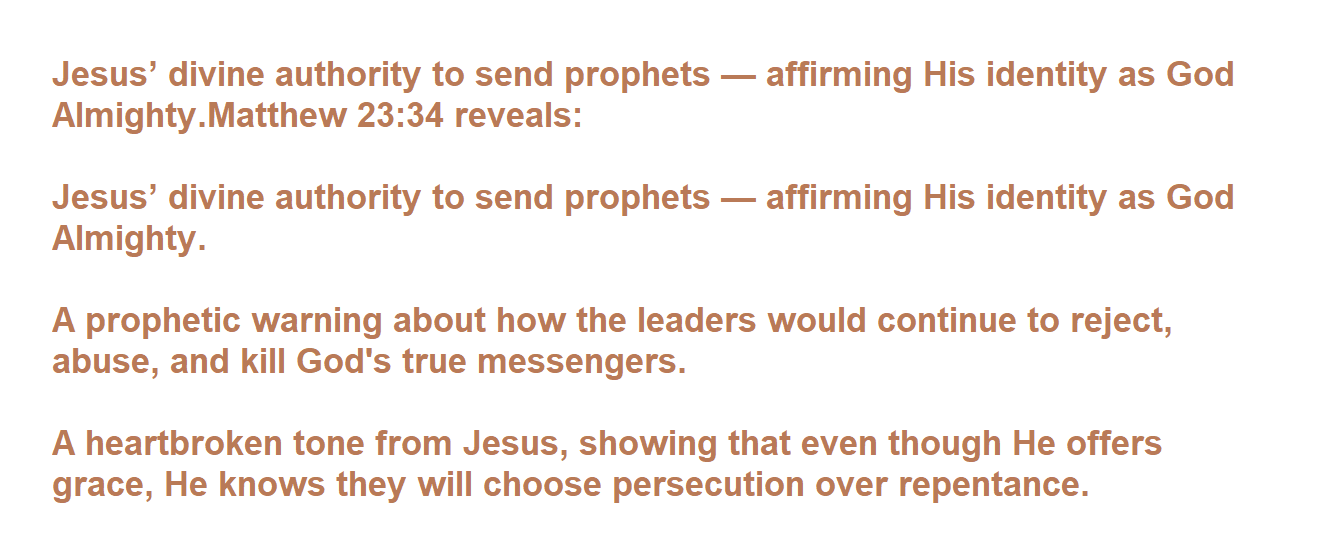
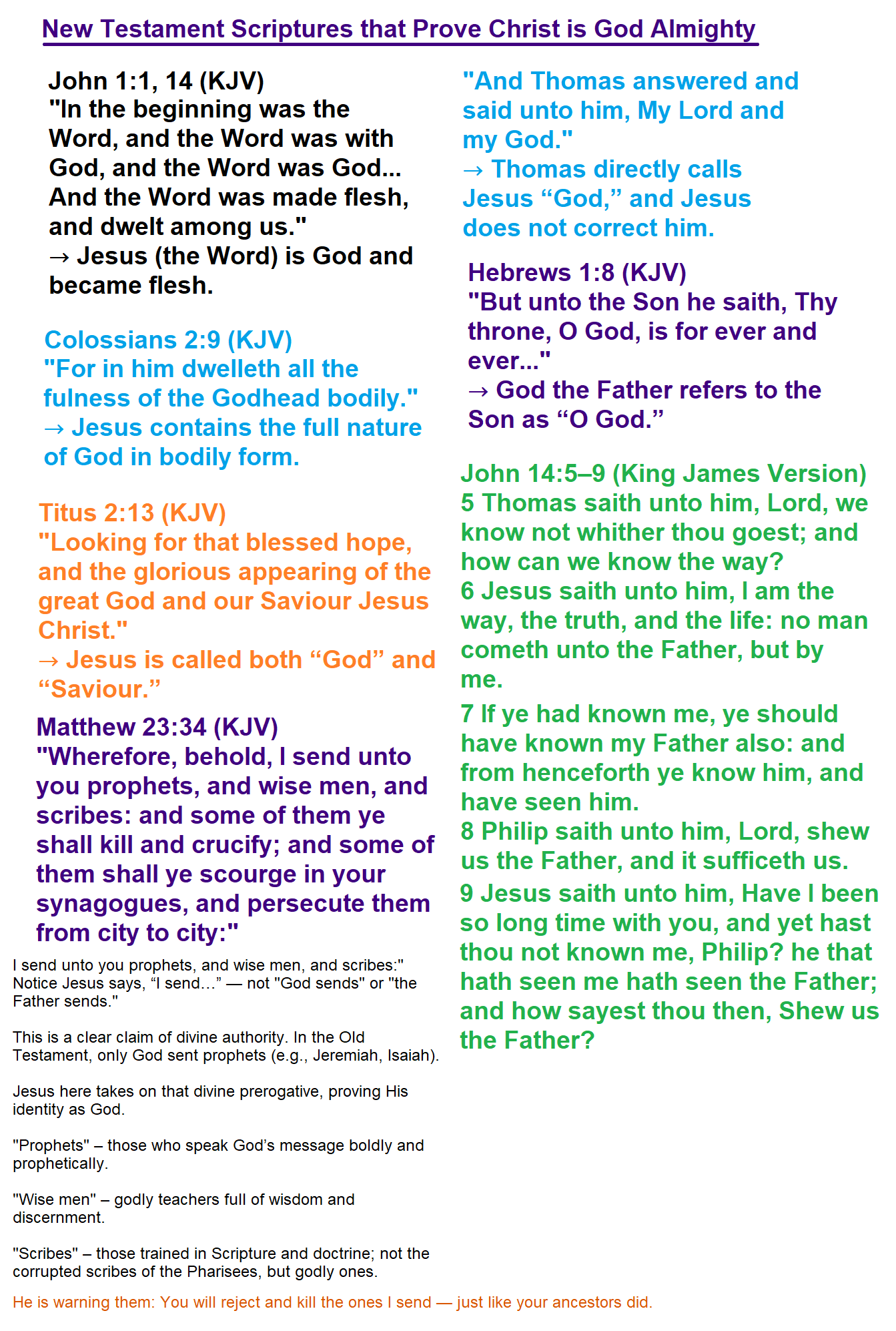







Write a comment
Write a comment
Ping a particular user